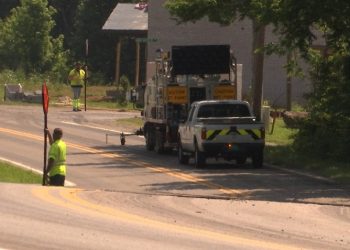Unicoi County, Tennessee — A recent investigation by the Tennessee Occupational Safety and Health Administration (TOSHA) into the tragic deaths of several employees at Impact Plastics, Inc., has concluded that the company did not violate workplace safety regulations during the catastrophic flooding caused by Tropical Storm Helene. Despite the agency’s findings, the incident continues to spark outrage from the victims’ families and employees, with many questioning whether more could have been done to protect lives.
According to TOSHA’s investigation, the management at Impact Plastics acted reasonably by giving employees ample time to evacuate before floodwaters reached dangerous levels. The company had dismissed its workers by 10:51 a.m. on September 27, 2023, after flash flood warnings were issued for the region. TOSHA investigators, who reviewed surveillance footage, conducted witness interviews, and spent time at the site, determined that work operations had already ceased and that evacuation routes were still accessible when employees left the building.
“The evidence showed that management exercised reasonable diligence in ensuring employees were given the opportunity to leave the site safely before the flooding intensified,” said Chris Cannon, a spokesperson for TOSHA. “Because work operations had stopped, and employees had left the building, the tragic deaths that followed were not work-related, and therefore, not within our jurisdiction.”
The flooding rapidly worsened after the workers had been dismissed, with water levels rising quickly by 12:23 p.m. A semi-truck on the nearby highway was swept away, jackknifing and causing chaos among those stranded on the truck’s flatbed trailer. The victims clung to large spools of pipe as they were carried downstream, some being rescued nearly a half-mile away. Six people survived, but tragically, six others, including five Impact Plastics employees and an independent contractor, lost their lives.
TOSHA’s report also highlighted that no employees were coerced into staying at the facility, and evacuation routes remained clear up until the time of departure. According to the findings, most employees were able to evacuate through one of four available routes, and the last of the office and management personnel left at 11:40 a.m.
However, the investigation has not put an end to the controversy surrounding the company’s handling of the situation. In the days following the tragedy, several Impact Plastics employees criticized the company for not acting quickly enough in response to the severe weather. Some workers alleged that they were not given sufficient guidance on what to do during the storm, while others claimed that management should have done more to ensure their safety.
The family members of the victims have also voiced strong disapproval, particularly regarding the company’s lack of a formal emergency action plan. In a lawsuit filed shortly after the tragedy, the family of one of the deceased workers argued that Impact Plastics, despite being in a flood-prone area, failed to prepare for such an emergency. The lawsuit contended that the company had prioritized meeting production quotas over employee safety.
Adding to the tension, some families accused the company of offering inappropriate compensation in the aftermath of the disaster. One of the victims’ sons, Guillermo Mendoza, described receiving his mother’s final paycheck along with $100 worth of fast food gift cards. “It was like, ‘your mom died. Go get a burger,'” Mendoza said. “It felt like they were just trying to brush it off with a little snack.”
Despite the backlash, TOSHA did not issue any citations against Impact Plastics, stating that the company had acted within the scope of safety regulations during the emergency. However, TOSHA recommended that the company take proactive measures to prevent similar incidents in the future. These recommendations include the development of a site-specific severe weather emergency plan, as well as training for both employees and management to recognize the dangers of severe weather conditions and to respond appropriately.
The flooding tragedy at Impact Plastics has raised important questions about workplace safety in the face of extreme weather events. While TOSHA’s investigation concluded that no violations occurred, the emotional toll on the families of the victims and the broader community remains palpable. As the company moves forward, it is clear that many believe improvements are necessary to prevent such a devastating event from happening again.













